Have you heard the phrase “everyone’s a lesbian nowadays, it’s just a trend”? Next time someone tells you our sexuality is a trend, redirect them to this article. Lesbians have been present since the beginning of time, and despite all the obstacles placed to make us invisible, we have the tendency to be resourceful and go around the rules and regulations. Lesbians have been writing about their love for the longest time, and if you didn’t know about them – sit down and pay attention, we’re about to go into the history of lesbian poetry.
Sappho (c. 630 – c. 570 BC)
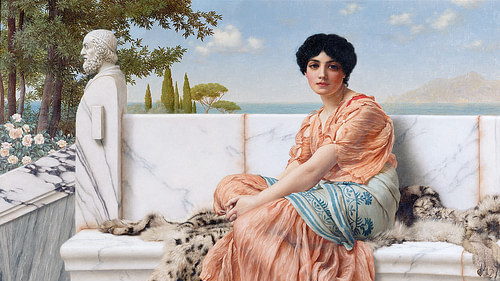
We’ve covered Sappho in the introduction of the week, but we can’t talk about writing without mentioning her. Sappho was not only the poetess, she was the first writer of all time. Although stories were shared between people, she was the one who had the idea to write them down, by using papyrus fragments. On the island of Lesbos, Sappho wrote thousands of lines about her love for women, of which only a few hundreds have been preserved. People have tried to rewrite the history of Sappho, so there’s no certainty concerning the facts of her life. However, they can’t change the inherent lesbian desire that her poetry uncovers.
Fragment 23
Sappho… of love . . .
when I see you face to face
not even Hermione seems like you
but to compare you to golden haired Helen is fitting . . .for mortal women, know that
with your heart
you would free me from all my troubles, . . .… dewy banks
to celebrate all night long . . .
Besides being the first writer, Sappho has influenced in particular the lyric genre. Her poems were destined to be sung while playing the lyre. Sappho wrote about her lovers and friends in a personal and direct manner, opposite to abstract concepts at the time such as truth and justice. Her legacy lives today in the expression of love and passion in poetry.
Someone will remember us, I say, even in another time.
Sappho
Wu Zao (1799 – 1863)
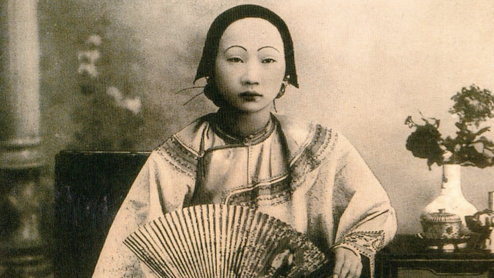
Wu Zao was a Chinese poetess who wrote in the lyricism genre. Her homoerotic poems set her apart from the fellow women poets of China. The reason she’s not very known today in the Western world is because less than ten of her poems were translated to English, due to their lesbian overtones. Besides poetry, Wu Zao was a playwright and a composer too. One of her most notable works is an opera about a cross-dressing woman who is a painter, who complains about the gender norms of the time (the opera is called “Yinjiu du Sao”, or in English “Reading the ‘Li Sao’ While Drinking”).
For the Courtesan Ch’ing Lin
On your slender body
Your jade and coral girdle ornaments chime
Like those of a celestial companion
Come from the Green Jade City of Heaven.
One smile from you when we meet,
And I become speechless and forget every word.
For too long you have gathered flowers,
And leaned against the bamboos,
Your green sleeves growing cold,
In your deserted valley:
I can visualize you all alone,
A girl harboring her cryptic thoughts.You glow like a perfumed lamp
Wu Zao
In the gathering shadows.
We play wine games
And recite each other’s poems.
Then you sing, “Remembering South of the River”
With its heartbreaking verses. Then
We paint each other’s beautiful eyebrows.
I want to possess you completely–
Your jade body
And your promised heart.
It is Spring.
Vast mists cover the Five Lakes.
My dear, let me buy a red painted boat
And carry you away.
Wu Zao is considered to be one of the most talented lyricists of the Qing Dynasty, her poetry being performed all across China. She is another example of a woman whose poetry slipped between the knots of Western patriarchy.
Emily Dickinson (1830 – 1886)
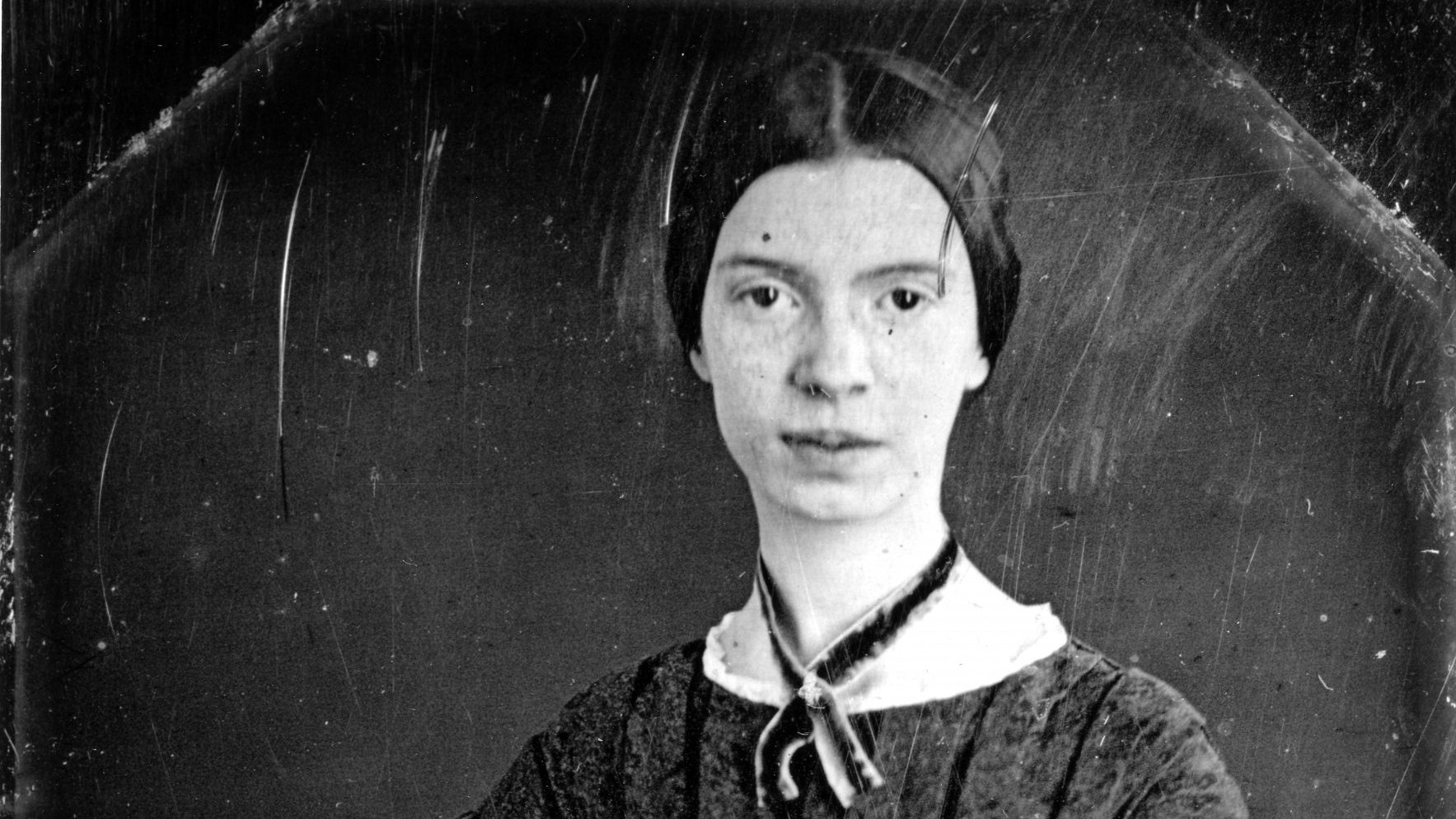
Emily Dickinson is one of the most popular American poetesses. Although she is revered now, she didn’t encounter much success during her lifetime, as most of her poems were dedicated to her friends and family. Emily Dickinson lived her entire life in the parental house, where she wrote numerous letters to Susan, her childhood best friend who married her brother. These letters and poems indicate a love affair between the two women. Susan Dickinson was not only her best friend and lover – she was Emily’s primary muse, reader and editor. Emily Dickinson never married.
This is my letter to the World
This is my letter to the World
That never wrote to Me—
The simple News that Nature told—
With tender MajestyHer Message is committed
Emily Dickinson
To Hands I cannot see—
For love of Her—Sweet—countrymen—
Judge tenderly—of Me
After Emily’s death, her younger sister, Virginia Dickinson, found over 1800 handwritten poems. The first collection of Emily Dickinson’s poetry was published in 1890. Her poetry lives on today in the hearts of many sapphics, whose yearning and desire is similar to Emily Dickinson’s own feelings.
Gertrude Stein (3 February 1874 – July 27 1946)
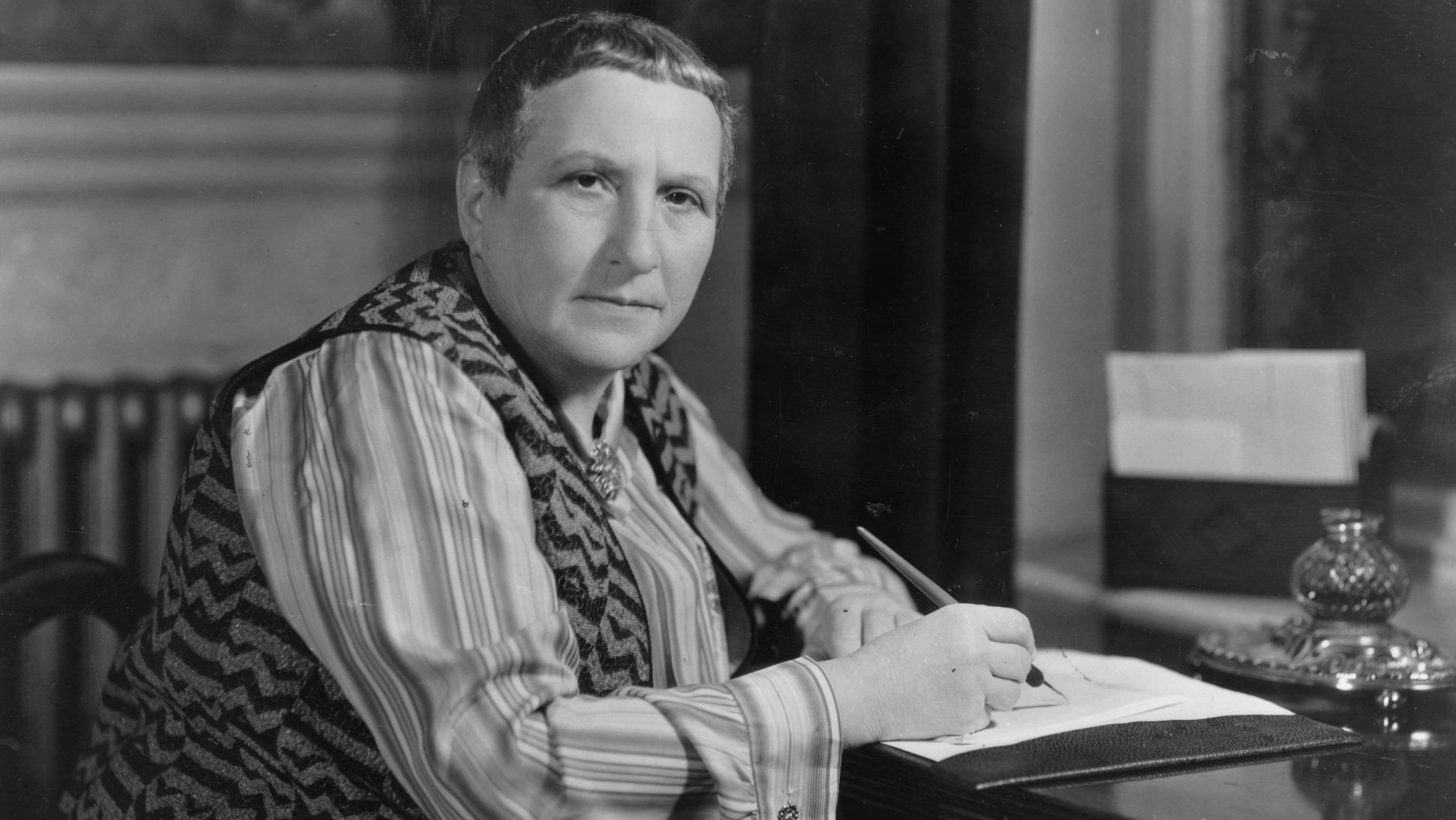
Gertrude Stein was an American and Jewish poet based in Paris. She lived most of her life in a relationship with Alice Babette Toklas, whom she got inspired by to write her most popular novel “The Autobiography of Alice B. Toklas”. Together they held a salon at their residence in Paris where painters such as Braque and Matisse, as well as writers such as Ernest Hemingway and F. Scott Fitzgerald, would reunite. Gertrude Stein’s poetry is described as experimental, the poet rejecting linear writing.
Susie Asado
Sweet sweet sweet sweet sweet tea.
Gertrude Stein
Susie Asado.
Sweet sweet sweet sweet sweet tea.
Susie Asado.
Susie Asado which is a told tray sure.
A lean on the shoe this means slips slips hers.
When the ancient light grey is clean it is yellow, it is a silver seller.
This is a please this is a please there are the saids to jelly.
These are the wets these say the sets to leave a crown to Incy.
Incy is short of incubus.
A pot. A pot is a beginning of a rare bit of trees. Trees tremble,
the old vats are in bobbles, bobbles which shade and shove and
render clean, render clean must.
Drink pups.
Drink pups drink pups lease a sash hold, see it shine and a bobolink
has pins. It shows a nail.
What is a nail. A nail is unison.
Sweet sweet sweet sweet sweet tea.
Gertrude Stein lived four decades with Alice B. Toklas, to which she left almost all her estate and art, despite their relationship not being recognised legally. Her writing influenced known authors and painters in their own craft.
Natalie Clifford Barney (31 October 1876 – 2 February 1972)
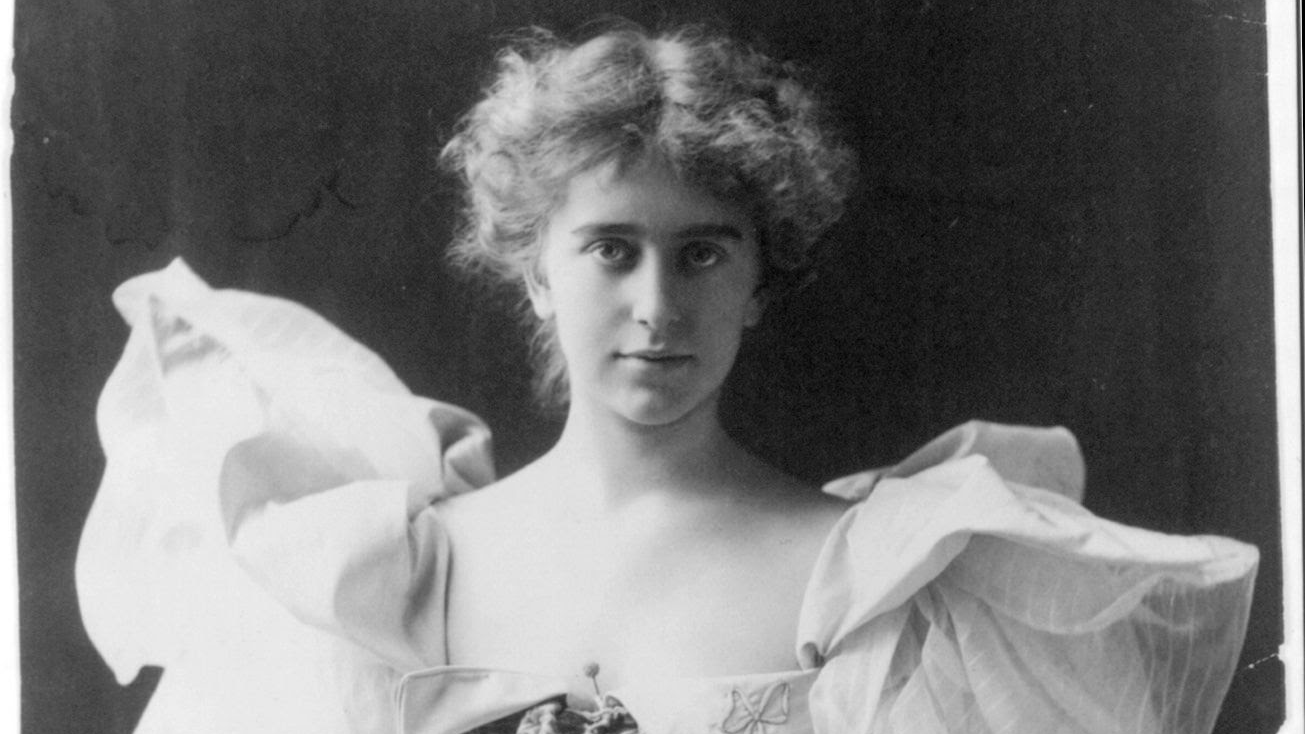
Natalie Barney was an American poetess based in Paris. She was the founder of a literary salon bringing together writers. Natalie Barney was an out-and-proud lesbian, who had countless romantic adventures with women – namely with Renée Vivien, Romaine Brooks, Elisabeth de Grammont (Duchess of Clermont-Tonnerre), Dolly Wilde and many more. The poet was dedicated to living her lesbian life to the fullest, one of her purposes being to recreate the lifestyle of ancient Greek poet Sappho, by creating a place where lesbians could live amongst each other.
The Phantom Guest
We lay in shade diaphanous
And spoke the light that burns in usAs in the glooming’s net I caught her,
She shimmered like reflected water!Romantic and emphatic moods
Are not for her whom life eludes…Its vulgar tinsel round her fold?
She’d rather shudder with the cold,Attend just this elusive hour,
A show in a shadow bower,A moving imagery so fine,
It must have been her soul near mineAnd so we blended and possessed
Each in each the phantom guest,Inseparate, we scarcely met;
Natalie Clifford Barney
Yet other love-nights we forget!
Natalie Barney published “Quelques Portraits-Sonnets de Femmes” (Some Portraits-Sonnets of Women), which was the first time a poetess had expressed lesbian desire openly in poetry since Sappho. Natalie Barney was ahead of her time, with her undying loyalty towards living her truth.
My queerness is not a vice, is not deliberate, and harms no one.
Natalie Clifford Barney
Renée Vivien (11 June 1877 – 18 November 1909)
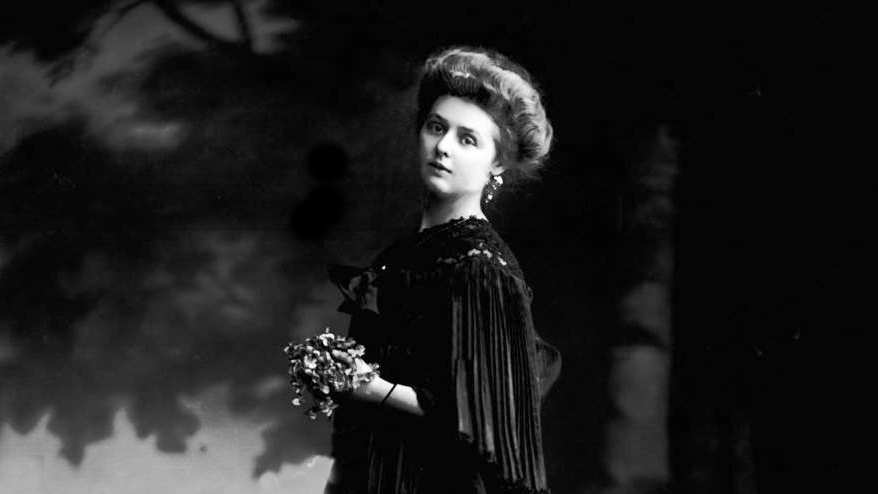
Renée Vivien was an English poetess. When she inherited her dad’s fortune at the age of twenty-one, she moved from London to Paris during the peak of the modernist era. Her ex-girlfriend, Natalie Barney ,wasn’t the only lesbian Renée Vivien dated. The poetess was involved in romantic relations with high-profile women, such as Baroness Hélène de Zuylen. Renée Vivien often wrote about these women, unashamed of her desire.
You for whom I wrote
You for whom I wrote, oh lovely young women without names,
You whom, alone, I loved, will you reread my verse
On future mornings snowing coldly on the universe,
By future quiet evenings of roses and flames?Will you sit dreaming, amid the charming disarray
Of disheveled hair, open robes, of her you never discover
Wherever you look: “Whether on day of mourning or festival day,
This woman wore always her glance, her lips of a lover.”Pale, giving forth a fragrance to haunt my flesh and mind,
Renée Vivien
In the magic evocation of the night when love should be rare and free
Will you say: “This woman had the ardor I can never find.
What a pity she is not living! She would have loved me!”
Renée Vivien was the first woman translator of Sappho’s poetry, who was heavily censored by male translators in the past. Since she brought justice to Sappho, as well as took inspiration from the poetess for her own poetry, Renée Vivien was nicknamed “Sappho 1900”. Her poetry used symbolism, being one of the last poets to use the particular genre. Renée Vivien’s poetry is a treasure that remains timeless.
Elsa Gidlow (29 December 1898 – 8 June 1986)
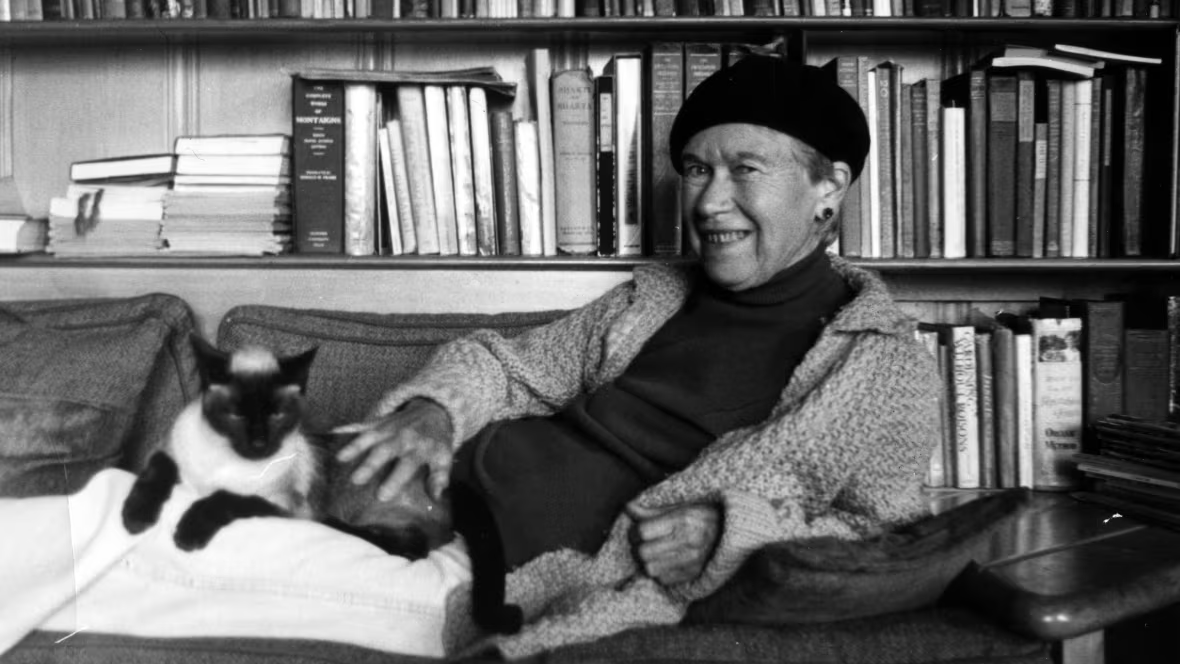
Elsa Gidlow was an American poet. She published the openly lesbian poetry collection in North America (“On A Gray Thread”). Elsa Gidlow was very open about her sexuality and her sapphic desire, even going as far as writing her autobiography and not using a pseudonym, as it was expected at the time. Together with Canadian journalist Roswell George Mills, they founded the first magazine in North America discussing the lives and issues of gays and lesbians.
For The Goddess Too Well Known
I have robbed the garrulous streets,
Thieved a fair girl from their blight,
I have stolen her for a sacrifice
That I shall make to this night.I have brought her, laughing,
To my quietly dreaming garden.
For what will be done there
I ask no man pardon.I brush the rouge from her cheeks,
Clean the black kohl from the rims
Of her eyes; loose her hair;
Uncover the glimmering, shy limbs.I break wild roses, scatter them over her.
The thorns between us sting like love’s pain.
Her flesh, bitter and salt to my tongue,
I taste with endless kisses and taste again.At dawn I leave her
Elsa Gidlow
Asleep in my wakening garden.
(For what was done there
I ask no man pardon.)
Elsa Gidlow later bought a ranch in San Francisco with her long-term partner of ten years, Isabel Quallo, which they named “Druid Heights”. Lots of artists, bohemians and feminists found refuge in the residence.
Adrienne Rich (16 May 1929 – 27 March 2012)
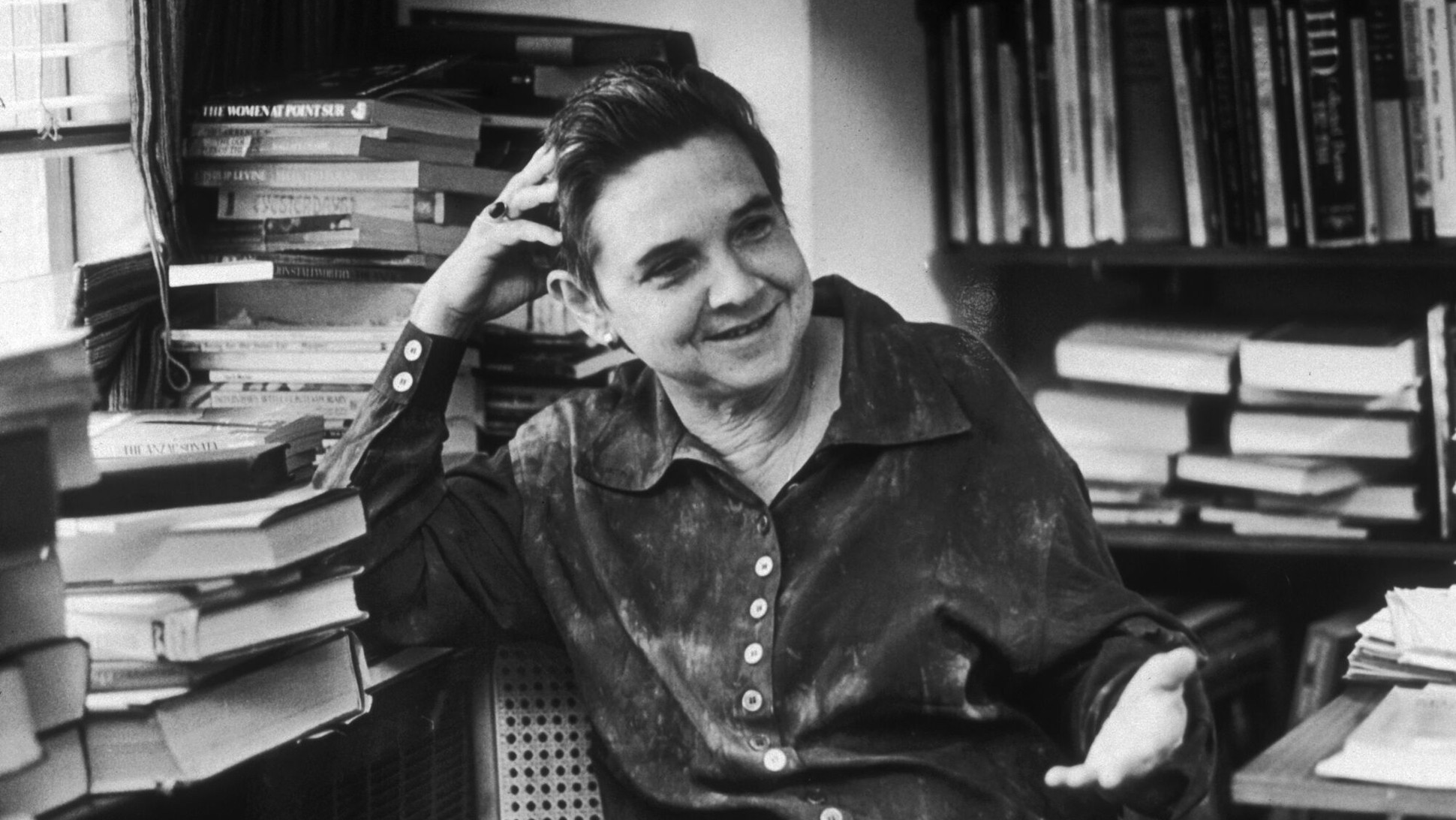
Adrienne Rich was an American poetess. One of her first works, “A Change of World” (1951), won the Yale Younger Poets Award. Although she started with influences by Yeats and Auden, she later found her writing style in free-verse. Her poems and essays became radical in their feminist nature, influencing the new generation of poetesses. They explore the themes of identity, sexuality, and politics. Her 1970s and 1970s poetry serves as the center of the second-wave feminist era.
Tonight No Poetry Will Serve
Saw you walking barefoot
taking a long look
at the new moon’s eyelidlater spread
sleep-fallen, naked in your dark hair
asleep but not oblivious
of the unslept unsleeping
elsewhereTonight I think
no poetry
will serveSyntax of rendition:
verb pilots the plane
adverb modifies actionverb force-feeds noun
submerges the subject
noun is choking
verb disgraced goes on doingnow diagram the sentence
Adrienne Rich
In 1976, Adrienne Rich began a relationship with Jamaican-American novelist Michelle Cliff, which lasted until her death in 2012. In 1997, she refused the National Medal of Arts, a bold move considering the prestige of the award. She published a letter explaining that she could not accept the award from President Clinton or the White House at the time, “because the very meaning of art as I understand it is incompatible with the cynical politics of this administration.” Adrienne Rich is one of the most respected American poets.
Every poem breaks a silence that had to be overcome.
Adrienne Rich
Audre Lorde (18 February 1934 – 17 November 1992)
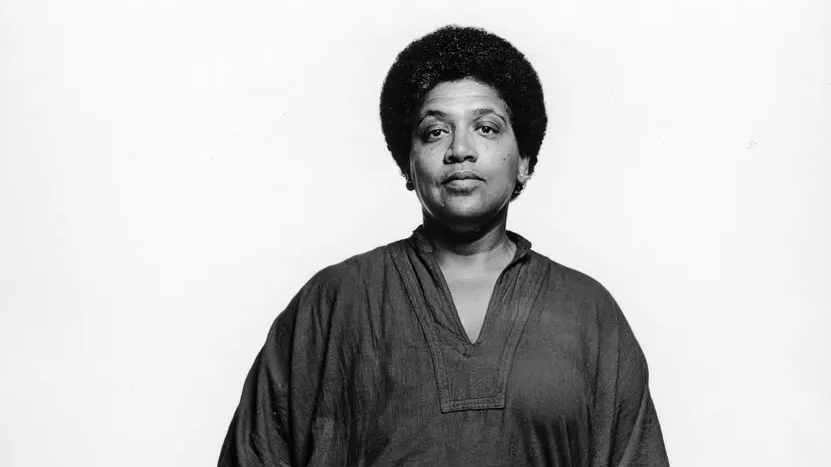
Audre Lorde was an American poetess. Her writing sheds light on being a Black lesbian woman in America, as well as her experiences as a mother and a breast cancer survivor. She began publishing her poetry in the 1960s while she was working as a librarian in New York City in magazines and anthologies. Audre Lorde’s first poetry collection was released in 1968, at the same time as winning the National Endowment for Arts grant. She went on to work as the writer-in-residence at Tougaloo College in Mississippi, where she met her partner, Frances Clayton.
Love Poem
Speak earth and bless me with what is richest
make sky flow honey out of my hips
rigis mountains
spread over a valley
carved out by the mouth of rain.And I knew when I entered her I was
high wind in her forests hollow
fingers whispering sound
honey flowed
from the split cup
impaled on a lance of tongues
on the tips of her breasts on her navel
and my breath
howling into her entrances
through lungs of pain.Greedy as herring-gulls
Audre Lorde
or a child
I swing out over the earth
over and over
again.
Audre Lorde is known for writing poetry that expresses anger and outrage at social injustice. She speaks about themes such as feminism, lesbianism, black female identity, illness and civil rights. Besides being a talented writer, she is a powerful spoken word performer. Audre Lorde’s dedication towards breaking silence on subjects that made her feel alone in her struggle, as well her participation in civil rights movements, will be remembered.
Mary Oliver (10 September 1935 – 17 January 2019)
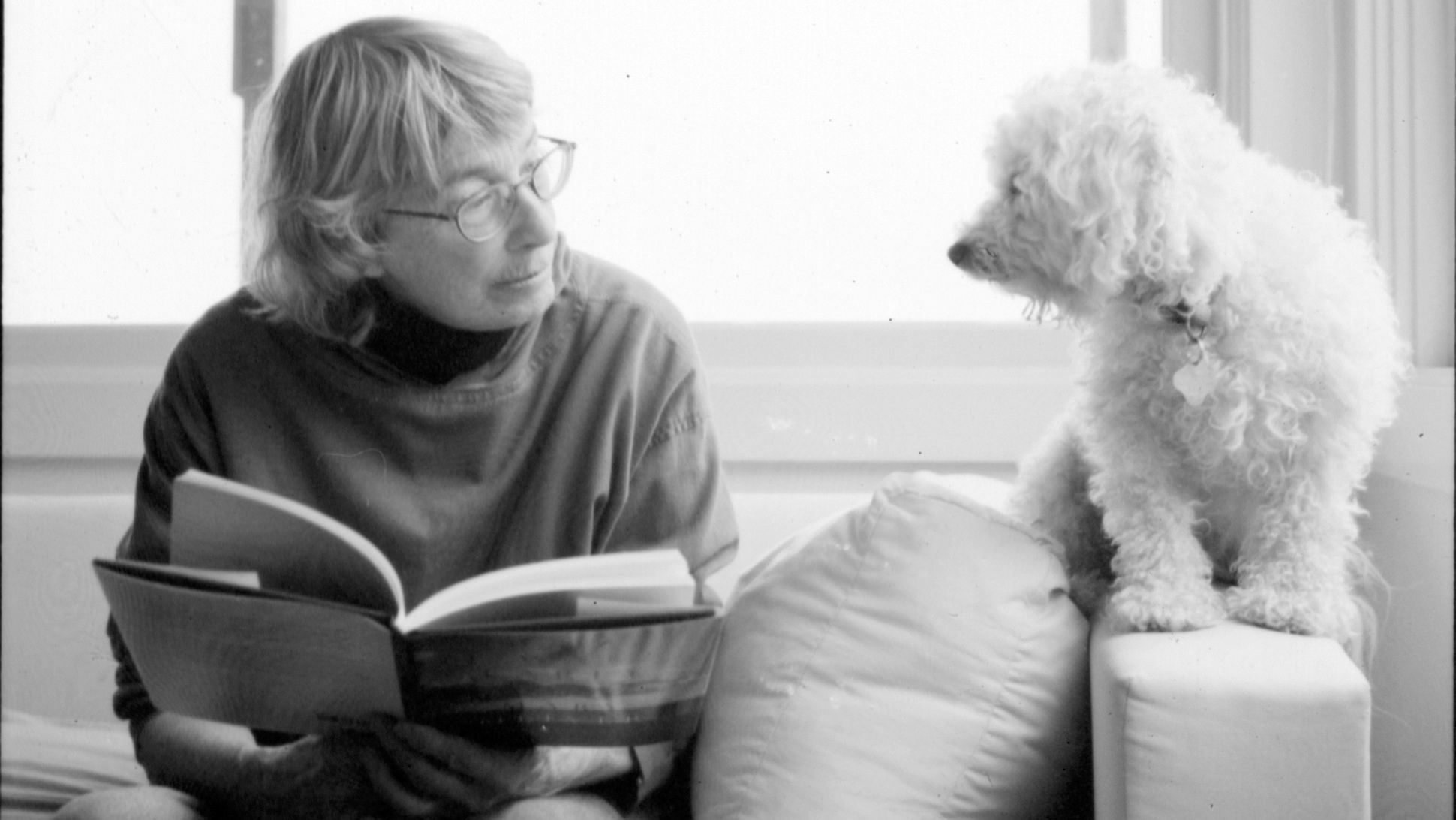
Mary Oliver was an American poetess. Having a difficult childhood home, she found refuge in the nearby woods where she wrote poetry and plays. Under the mentorship of Edna St. Vincent Millay, she published her first poetry volume, “No Voyage and Other Poems” in 1963. In the late 1950s, Mary Oliver met her partner, photographer Molly Malone Cook. They shared a life together in Provincetown, Massachusetts, until Molly Malone Cook’s passing in 2005.
I don’t want to lose
I don’t want to lose a single thread
Mary Oliver
from the intricate brocade of this happiness.
I want to remember everything.
Which is why I’m lying awake, sleepy
but not sleepy enough to give it up.
Just now, a moment from years ago:
the early morning light, the deft, sweet
gesture of your hand
reaching for me.
Mary Oliver’s poetry is often inspired by nature, but her partner Molly Malone Cook is equally present in her writing. Mary Oliver’s poetry contains distinct and poignant observations of nature, the specific writing style earning her high-profile praise, such as her fifth book, “American Primitive” (1983) winning the Pullitzer Prize. A lot of people continue to find comfort in her descriptions of nature and love.
If lesbian poetry’s not quite your niche, check out our article from yesterday about lesbians in television:
Sources:
- Poetry Foundation, Sappho, accessed 23 April 2024, <Sappho | Poetry Foundation>
- Sweetbitter Podcast, Sappho 8: Fragment 23 Transcript, accessed 23 April 2024, <Sappho 8: Fragment 23 Transcript – Sweetbitter Podcast>
- Ronnow Poetry, For The Courtesan Chi’ing Lin, accessed 23 April 2024, <For the Courtesan Ch’ing Lin (ronnowpoetry.com)>
- The Adrian Brinkerhoff Poetry Foundation, This is my letter to the World, accessed 23 April 2024, <This is my letter to the World – The Adrian Brinkerhoff Poetry Foundation>
- All Poetry, Gertrude Stein, accessed 23 April 2024, <Gertrude Stein – Poems by the Famous Poet – All Poetry>
- Poetry Foundation, Gertrude Stein, accessed 23 April 2024, <Gertrude Stein | Poetry Foundation>
- Academy of American Poets, The Phantom Guest, accessed 23 April 2024, <The Phantom Guest by Natalie Clifford Barney – Poems | Academy of American Poets>
- All Poetry, Renée Vivien, accessed 23 April 2024, <Renee Vivien – Poems by the Famous Poet – All Poetry>
- Taylor & Francis Online, “Drunk with chastity”: The poetry of Renée Vivien, accessed 23 April 2024, <“Drunk with chastity”: The poetry of Renée Vivien: Women’s Studies: Vol 13 , No 1-2 – Get Access (tandfonline.com)>
- All Poetry, Elsa Gidlow, accessed 23 April 2024, <Elsa Gidlow – Poems by the Famous Poet – All Poetry>
- Poetry Foundation, Adrienne Rich, accessed 23 April 2024, <Adrienne Rich | Poetry Foundation>
- Academy of American Poets, Tonight No Poetry Will Serve, accessed 23 April 2024, <Tonight No Poetry Will Serve by Adrienne Rich – Poems | Academy of American Poets>
- Poetry Foundation, Mary Oliver, accessed 23 April 2024, <Mary Oliver | Poetry Foundation>
- Girl Friends of Dorothy, Sapphic Poets Throughout History, accessed 23 April 2024, <Lesbian Poets & Sapphic Poetry In History | Girl Friends of Dorothy (sushi-rider.com)>

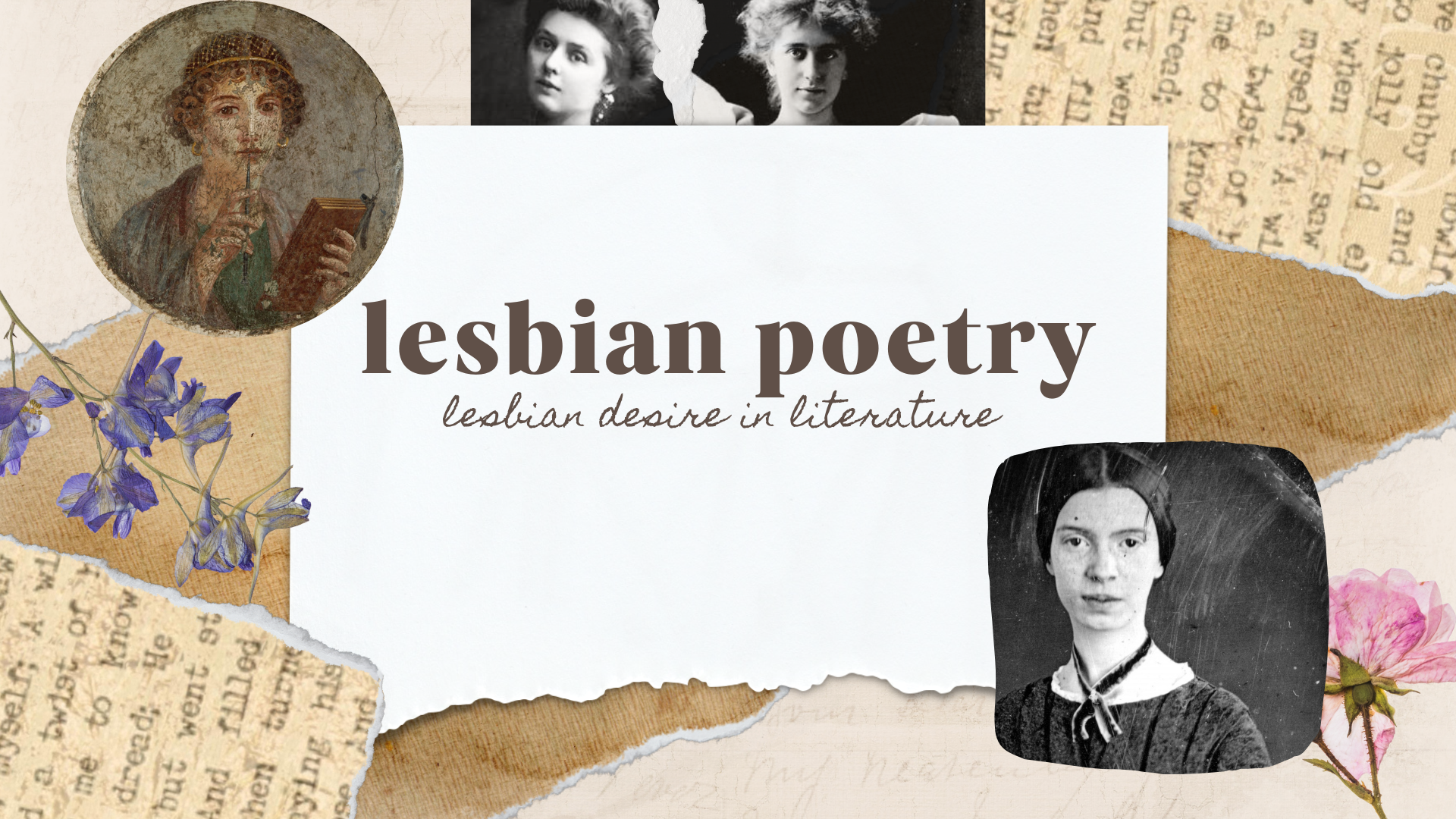
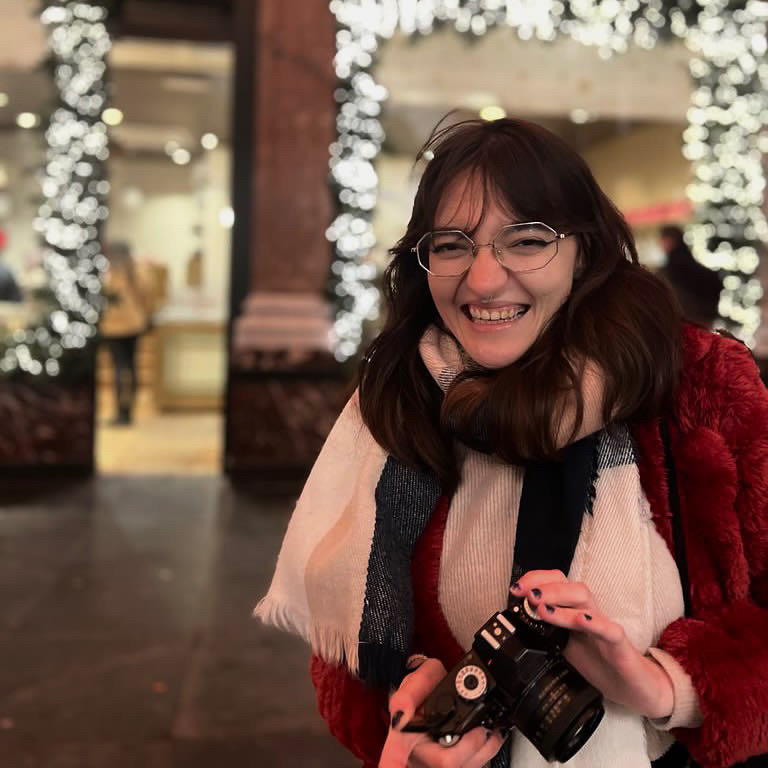
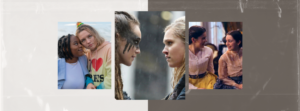

One thought on “Lesbian Poetry – A Study of Lesbian Devotion in Literature ”
Comments are closed.